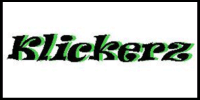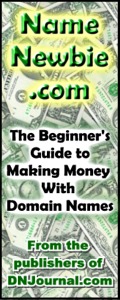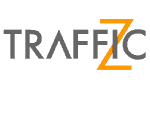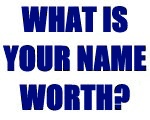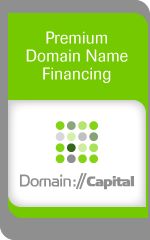|
Domain
owners are invited to gather in Barcelona, Spain
July 25-27 for a European Domain Fest being sponsored by DomainSponsor.com
and EuroDNS.com.
The event will be held at the spectacular Hotel Arts - Ritz
Carlton and there will be NO registration fee! The
sponsors are covering the cost for most of the meals, cocktail
receptions and entertainment so attendees will only need to
handle their own hotel and travel expenses. Organizers say the
primary focus of the conference will be on creating new
business opportunities and sharing industry-related ideas. You
are invited to RSVP at www.domainermeeting.eu.
For more information you can send an email to [email protected].
Posted June 30, 2006
The
online edition of the Melbourne, Australia newspaper
The Age joined the parade of mainstream media
outlets writing about the domain business this week with an
article titled "Property
Boom Shifts Online" by Louisa Hearn.
The article was aimed at readers who are unfamiliar with this
business, so there is nothing in the article that veteran
domain investors won't already be familiar with. However, it
was nice to see a straight forward factual account of the
business, rather than the kind of articles we've seen this
month that have been tainted by biased or ill-informed writers
who recklessly tried to tar all domain owners with the
cybersquatter brush.
Posted June 29, 2006
The
ICANN Meeting in Marrakech, Morocco got underway
yesterday (June 27) with a much anticipated Domain Name
Marketplace Workshop. Jothan Frakes, who
produces the Domain
Roundtable Conference, served as moderator for the
session and sent us a link to a complete
transcript of what was said during the workshop
that featured a number of industry leaders.
Posted June 28, 2006
According
to Advertising Age magazine, a seismic shift in
where advertisers spend their money may be occurring this
year. The network TV "upfront" season is currently
underway (the period in which advertisers book time for the
upcoming fall TV season) and it looks like TV's take could
plunge by up to $600 million this year. The magazine reports
the money is going to new digital options like the web that
have given marketers far more bargaining power in their
dealings with the TV networks. For domainers PPC income
usually slumps in the summer, but many are reporting higher
revenue than ever this year. It appears that boom is being
fueled by ad dollars continuing to migrate into our space from
old media outlets.
Posted June 27, 2006
Germany's
.de extension hit 10 million registrations Monday
(June 26), joining .com as the only extensions to pass
that landmark. A press
release from Denic.de (operators of the .de
extension) said domain #10,000,000 was huettenberger-case-fabrik.de,
registered by a manufacturer of transport cases from Linden,
a small town in the vicinity of Frankfurt.
Posted June 27, 2006
Domain
developers who currently rely on Google Adsense for
revenue may soon be able to tap another income source that the
search leader is currently testing. According to a Google
email posted in a blog entry by David Jackson at SeekingAlpha.com,
Google is looking at a CPA (cost per action) ad program
in which the advertiser would pay only when surfers click a
link and go on to perform a specific action, such as making a
purchase or providing an email address. Typically generation
of a lead or sale will pay considerably more than a simple
click that does not require a follow-up action. If the new
program is implemented it would be separate from AdSense so
publishers could run ads from both programs at the same time.
Posted June 26, 2006
EURid,
the operator of the .eu registry, says that those
who acquired domains during the rollout of the European
Union's new extension through use of false or misleading
information could have their registrations revoked at any
time. However, according to Out-Law.com,
EURid spokesman Patrik Linden said those who broke the
rules to get prime .eu domains could keep the money if
they are able to sell them before getting caught. The .eu
rollout has been plagued with controversy with some
registrars, including GoDaddy,com, claiming that
U.S. profiteers took advantage of a lax EURid system to
stockpile valuable domain names against its rules.
Posted June 23, 2006
Verisign
(Nasdaq: VRSN) shares got a boost Wednesday when
stock analyst Gregg Moskowitz of Susquehanna predicted
the company would get a big increase in revenue if the
controversial ICANN-Verisign .com agreement is approved
by the U.S. Department of Commerce. The agreement would
allow Verisign to raise .com registration fees four times
over the next six years. John Berard, the spokesman
for the Coalition
for ICANN Transparency, a trade group that opposes
ratification of the agreement, said today's financial news
undermines persistently repeated statements supporting the
deal (which is the subject of antitrust litigation in federal
court and is currently being looked at by a Congressional
committee). Berard said, “When ICANN general counsel John
Jeffrey and VeriSign Internet Advisory Board member Rick
White told Congress two weeks ago that there were ‘no
major differences’ between the current contract and the
proposed deal and that just because VeriSign can increase
prices without review didn’t mean they would, they drew
laughs. Press reports today quoting financial analysts
who say the 2008 impact should be large puts the lie to those
statements." Berard added, "ICANN has let
VeriSign browbeat it into a bad deal. No one objects to
VeriSign running the .COM database as they now do. ICANN
should use the time between now and the end of that contract
in September to rebid it for the benefit of all.”
Posted June 22, 2006
According
to a new Harris
Poll, the number of American adults
using the Internet continues to show steady growth, with 77%
now online at home, work, school or other location. That is 172
million surfers, a 5% increase in the total number online
over the past year. When Harris Interactive first
started tracking Internet use in 1995, only 9% of American
adults were using the web. By 2000, the number had shot up to
57%. The new report also provides a breakdown in demographic
use of the web. Not surprisingly, Internet users tend to be
younger and more affluent than non-users. Those demos are
especially attractive to advertisers and are helping to drive
the continuing flight of ad dollars from old media to the web.
Posted June 21, 2006
Oversee.net,
the operators of leading domain monetization service DomainSponsor.com,
today announced their acquisition of a privately-held
portfolio of 35,000 domain names. Commenting on the
transaction, Oversee.net CEO Lawrence Ng said,
"The domain industry is undergoing significant change.
While it is consolidating on some fronts, there is escalating
interest in the acquisition of domain names and direct
navigation traffic." Ng added, "this deal was
executed in record time. Unlike financial players, our
technology gives us a distinct advantage in evaluating
portfolios. We have the knowledge and resources to close an
acquisition in a matter of days." The company says it
monetizes more than one million domain names and has more than
100 million unique visitors per month.
Posted June 20, 2006
.FR,
the country code for France is opening to individual
registrations starting tomorrow - Tuesday, June 20th.
The French ccTLD was previously limited to companies,
organizations and holders of trademarks valid in France.
Starting June 20 there will be only two conditions for
eligibility: the registrant must be over 18 years old and able
to provide an address in France. AFNIC, the operator of
the .fr registry, has accredited several registrars to offer .fr
domains. One of those, EuroDNS.com,
said they will provide a 50% discount on .fr registrations
with the promotional code: FR50PR.
Posted June 19, 2006
Jeff
Baron of Compana.com, whose company had a
representative at the Congressional hearing into the proposed ICANN-Verisign
.com agreement June 7 (see items further down in this
column), tells us he believes momentum opposing the agreement
is getting stronger. The House committee invited domainers to
submit their views on the controversial agreement by
Wednesday, June 21 but there has been little publicity
about where your letters should be sent. They can be FAXed to
either (202) 225-3587 or (202)
225 7209 or emailed to [email protected].
Address your comments to:
The Hon. Donald Manzullo
Chairman
Committee on Small Business
U.S. House of Representatives
Washington, DC 20515
Posted June 18, 2006
In
view of the item we posted yesterday, this would be
a good time to address the misuse of
the word "cybersquatter" that we unfortunately still
see from time to time in the mainstream press. Erick
Schonfeld's justification for mistakenly labeling
domainers as "cybersquatters" (see June 14
item below this entry) was that he found a definition in one
dictionary that did not refer to trademarks, defining a
cybersquatter as "a person who buys one or more
commercially viable domain names for the purpose of reselling
for a profit". That is obviously a dictionary that needs
updating since, as one domainer pointed out in a reply to
Schonfeld's blog (with many sources cited) the
term is universally understood to refer to trademark
domains only. The original word "squatter"
is defined as “someone who settles on land without right or
title". The cyber prefix was added only to produce an
internet equivalent of the word squatter. Domain owners have
purchased the rights to their domains so they are obviously not
squatters.
Even
if someone accepted the virtually unrecognized definition
of the term Schonfeld cites, it is still inaccurate in
referring to people who park domains. Many, like giant
portfolio holder Name Administration, do not offer to
resell domains, so clearly do not meet the definition of the
word even as Schonfeld so carelessly uses it. Regardless
of the semantics, the important thing is that "cybersquatter"
is viewed by generic domain investors as a derogatory
and insulting term and for that reason alone should never
be used in referring to them. It is a situation similar to
what you have with the word "coon". The primary
dictionary definition is harmless enough - a "North
American raccoon", yet directed at the wrong person it
becomes a racial slur (as a St. Louis DJ found
out when he used the word in referring to Secretary of State Condoleeza
Rice and was immediately fired).
If you call a generic domain
owner a cybersquatter it is a blatant insult (and if
you say it to a generic domain owner face-to-face you may find
that your nose has suddenly been realigned, just as it might
be if you went around spouting racial slurs). As they did with
Schonfeld, domain owners are right to call out people
who cavalierly apply this ugly term to honest investors in a
legitimate business that is attracting some of America’s
best known capital investors.
Posted June 15, 2006
In
one of the most ignorant comments we've seen from a
mainstream business reporter to date, Business 2.0
Magazine's Erick Schonfeld labeled domain investors as
"The New Cybersquatters" in a stunningly
misinformed blog
entry yesterday. Never mind that cybersquatting
involves unauthorized use of trademarked names and has
nothing to do with the generic domains most investors
specialize in. We feel such irresponsible use of this insulting
term is no different than using the "N" word to
refer to black people. That may sound like hyperbole, but I
believe there is no difference between slurs because the
original intent of all slurs is to dehumanize and
belittle the person being smeared. Left unchallenged, the
notion that generic domain investors are all cybersquatters
will make it OK to take away their rights and property
(domains) because, hey, after all, they are just
cybersquatters. Obviously that kind of damage cannot be
compared to the great horrors of history like the Holocaust
and slavery that resulted when people were allowed to be
treated as less than human and undeserving of the rights
everyone else has. However at the root level (the initial use
of any slur) the aim is the same. In this case, I believe it
has to be nipped in the bud and the word "cybersquatter"
when misapplied, as it is so often, needs to be as regarded
with as much contempt as any other slur. It's an insult to you and an insult to
such mainstream businessmen as Starbucks Chairman Howard
Schultz, MySpace co-founder Richard Rosenblatt and Ross
Perot who are among those investing big money in the
domain space. Domains simply represent another valid and very
effective advertising channel, one that is growing rapidly
because it helps guide consumers to products they want. Would
Schonfeld insult advertisers who use his magazine to reach
consumers? Maybe he he would like to call them "snake oil
salesman" or some other grossly inappropriate term. It
was heartening to see Schonfeld blasted for his
comments by many from the domain community, quickly forcing
him to prevent others from commenting in his blog when
it became too hot in the
kitchen for him. While he is certainly free to express his
opinion, we have to think a reputable magazine like Business
2.0 (which ran the first major magazine article on the domain
industry last December) must be embarrassed to have such an offensive and inaccurate characterization made in their name.
Posted June 14, 2006
40%
of online retailers expect to see their businesses
grow 30% over 2005 according to a survey commissioned
by InternetRetailer.com.
47.5% of the businesses that participated in the survey expect
growth rates ranging from 10%-30% while just 12.5% anticipate
a yearly gain of less than 10%. While web-based business
continue to boom, their brick & mortar counterparts aren't
doing so well. The same report says that 39.5% of chain
retailers, catalogers and consumer brand manufacturers are
ready to reduce expenses, including their marketing,
fulfillment and general overhead, to sustain profitability.
Posted June 13, 2006
The
move by large portfolio owners to try to increase
revenues by adding content to their domains continues to gain
momentum. Internet
REIT announced a partnership with Associated
Content today to provide relevant user-generated
content across multiple iREIT sites including Netster.com,
Consulting.com, HispanoMundo.com, MovieClips.com
and MutualFunds.com. iREIT CEO Bob Martin said,
"Associated Content allows us to quickly enhance the
information available on many of our sites without having to
generate this unique content in-house, which gives us
significant leverage as we continue our rapid growth."
Associated Content pays its online community of Content
Producers for original audio, video and text and then publishes
this content across its partner sites, as well as on their own
site.
Posted June 13, 2006
YesDirect
(operators of BuyDomains.com) has a new name. The
company was rechristened as NameMedia
today. The company also announced its new Direct Search platform
designed to give online advertisers access to its rapidly growing network of search destinations that
currently attracts more than 25 million visitors each
month. NameMedia is backed by Highland Capital Partners and
Summit Partners. Over the last year, it has acquired a leading domain reseller, BuyDomains, a
well-known PPC (pay per click) parking service, GoldKey.com, and dozens of smaller domain collections to create
the world's largest domain portfolio, one that now contains more than
1 million names. Also today the company named Kelly
Conlin as its CEO. Conlin has been CEO of technology media company IDG
and targeted media company Primedia. His experience also includes
CNN and the New York Times. “Domain names are the real estate of the Internet,”
Conlin said. “They provide opportunities to buy, sell and develop property. With such a large collection of undeveloped real estate, we have a compelling platform for creating a media company that leverages Direct Search while continuing to be the leading buyer and seller of premium domain properties.”
Posted June 12, 2006
The
percentage of American homes with high-speed
internet access soared from 30% to 42% in the
year ending March 2006 according to the 2006
Home Broadband Adoption Report from the Pew Internet & American Life Project.
The report showed that wider access to high speed connections
has accelerated consumer-generated media (CGM) on the Internet
(and the purchase of domain names that usually accompanies new
blogs and personal websites). Based on two U.S. telephone tracking surveys, the report estimated
that 35% of all Internet users (48 million people)
have posted content to the web, including blogs, web pages and
self-created content like videos, artwork or articles. An even higher percentage of home broadband
users (42%) have posted content to the Internet. This group accounts for
73% of all home Internet users who were the source of online content.
Posted June 9, 2006
Muinish Krishan of Netsphere
was among those who submitted a letter of testimony to the
U.S. Congressional Committee looking into the proposed
ICANN-Verisign .com agreement (see items below). Krishan said that the small business community is “asking for a market where small business can invest and grow in a market without fear that a corporation in a monopoly position, protected by ICANN, will attempt to hijack successful business models to the exclusion of
competitors. The proposed agreement provides for VeriSign to have exclusive access to [traffic] data for its own commercial benefit," Krishan said. "Currently, we obtain this data through other sources, and it is essential to our business; without it, we would no longer order new domain name registrations. This poses a threat to our existence without providing any benefit to marketers or consumers.”
You can read his full testimony here.
Silicon.com
also posted a good synopsis of yesterday's hearings on their
site today.
Posted June 8, 2006
Here's
an update on the congressional hearing into the
controversial ICANN-Verisign .com agreement held June 7
in Washington, D.C. One of the more
interesting comments came from Network Solutions CEO Champ
Mitchell whose company was once owned by Verisign.
Mitchell said the .Com deal "shocks the
conscience." He added that there was no need to rush to a
bad judgment as discussions on the future of the Memorandum
of Understanding between ICANN and the Department
of Commerce is underway and the current .com contract is
not scheduled to end until next fall. Committee members
apparently agreed with the go slow approach, deciding to
accept written public comments on the proposed agreement for
the next two weeks.
Posted June 7, 2006
The
U.S. House of Representatives hearing on the
proposed ICANN-Verisign .COM agreement (see 2nd item
below this post) opened today in Washington D.C. with Internet
REIT President Marc Ostrofsky among those
who submitted testimony against ratification of the agreement.
Ostrofsky said "it will raise significantly the cost of doing business without sufficient justification,
it ignores and shuts the door to alternatives which could decrease these costs by a significant amount, and
it opens the door to unfair competition by VeriSign. Ostrofsky
said the contract would cost his company over $1 million
a year in additional domain registration costs. Ostrofsky
added, "The contract gives VeriSign almost unfettered discretion to unilaterally raise rates with little to no accountability.
Not only does the VeriSign contract assure increased costs, by entering into
it ICANN will have turned its back on other potential bidders who could greatly decrease current costs."
The full text of Ostrofsky's statement to the Committee can be read here.
Yesterday the Coalition
for ICANN Transparency (CFIT) issued a formal
statement to the Committee as well as a press
release asking the Congressmen to act on behalf of
the Internet community whose wishes CFIT says have been
ignored by the ICANN-Verisign deal.
Posted June 7, 2006
We
have posted a number of items about the migration
of advertising dollars from old media outlets, especially
newspapers, to the web. However, there has been one silver
lining for print media. ClickZ
News reports that online newspaper ad
spending soared 35% to more than $613 million in
the first quarter of 2006 compared to the same quarter a year
earlier. Until recently, many newspaper publishers provided web
advertising as free add-ons to print ad orders but now Peter
Krasilovsky of local media consulting firm Krasilovsky
Consulting says "Newspapers are beginning to
establish separate value for their online ads. That accounts
for some new dollars coming into the stream."
Posted June 6, 2006
The
U.S. House of Representatives Committee on Small Business will hold a hearing on the
controversial proposed .COM agreement between ICANN
and Verisign on Wednesday, June 7 at 2:00 p.m. The
congressional session has been labeled "Contracting the Internet: Does ICANN create a Barrier to Small
Business?" John Berard of the Coalition
for ICANN Transparency (CFIT.info),
a trade organization that has been lobbying against
ratification of the agreement, said "Ever since the ICANN board cast its contentious 9-6 vote on the proposed .COM
agreement the Internet community has voiced continued opposition on the matter. This hearing is yet more evidence that the .COM deal is wrong for the community and is wrong for small business. By granting VeriSign a perpetual monopoly to the .COM registry, the Internet community will be faced with unjust price increases and a continued erosion of the check-and balances."
Posted June 2, 2006
|



